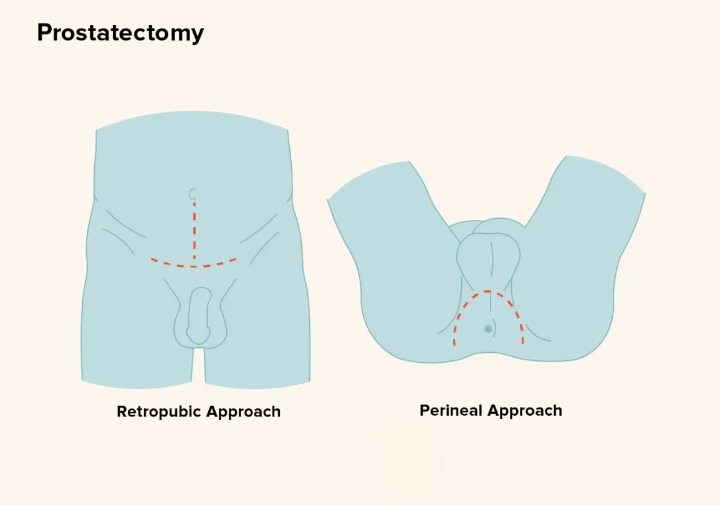Prostate surgery, a common treatment for conditions like benign prostatic hyperplasia (BPH) or prostate cancer, can bring relief and improve quality of life for many men. However, like any surgical procedure, it carries potential side effects that patients should be aware of.
Here are some of the common side effects associated with prostate surgery:
- Erectile Dysfunction (ED):
- One of the most concerning side effects of prostate surgery is erectile dysfunction. This can occur due to damage to nerves and blood vessels that are crucial for maintaining erections. The risk of ED varies depending on the type of surgery performed and the patient’s preoperative sexual function.
2. Urinary Incontinence:
- Prostate surgery can lead to temporary or permanent urinary incontinence, which is the inability to control urine flow. This occurs because surgery may disrupt the sphincter muscles or nerves that control bladder function. Incontinence severity can range from mild leakage to complete loss of bladder control.
3. Urinary Symptoms:
- Some men may experience persistent urinary symptoms following surgery, such as urgency, frequency, weak stream, or difficulty urinating. These symptoms can occur due to residual prostate tissue or bladder irritation.
4. Changes in Ejaculation:
- Depending on the surgical technique used, men may experience changes in ejaculation. This can include retrograde ejaculation, where semen enters the bladder instead of exiting through the penis, or reduced semen volume.
5. Bleeding:
- Bleeding is a common risk during and after prostate surgery. While most cases are minor and resolve on their own, excessive bleeding may require additional treatment or procedures.
6. Infection:
- Like any surgery, prostate surgery carries a risk of infection. This can occur in the surgical site, urinary tract, or bloodstream. Antibiotics are typically given before and after surgery to reduce this risk.
7. Stricture Formation:
- Scar tissue formation (strictures) can occur in the urethra following surgery, leading to difficulty urinating. This may require further treatment such as dilation or surgery to correct.
8. Chronic Pain:
- Some men may experience chronic pain in the pelvic area or penis following surgery. This can be due to nerve damage, inflammation, or other factors.
9. Anesthesia Risks:
- General anesthesia, which is often used during prostate surgery, carries its own set of risks including allergic reactions, respiratory problems, and cardiovascular complications.
10. Emotional and Psychological Effects:
- Dealing with the physical changes and potential loss of sexual function can have emotional and psychological impacts on patients and their partners. Counseling and support groups may be helpful in managing these effects.
It’s important to note that not all men will experience these side effects, and the severity can vary widely. Factors such as age, overall health, the type of surgery performed, and the surgeon’s skill all play a role in determining the likelihood and extent of side effects. Before undergoing prostate surgery, patients should have a detailed discussion with their healthcare provider to understand the potential risks and benefits, as well as what to expect during recovery.





Comments